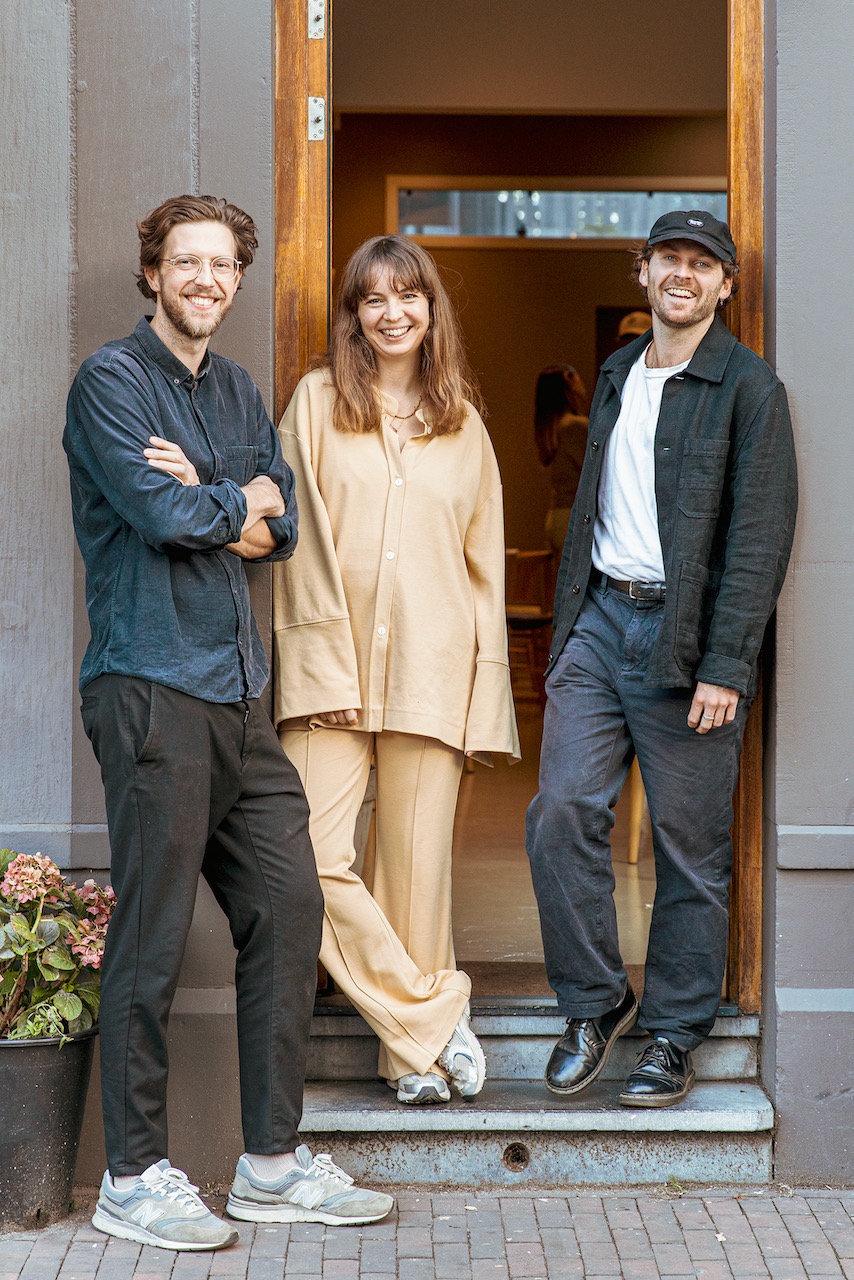
Bridging the Disconnect: Nothing Ordinary about Coffee
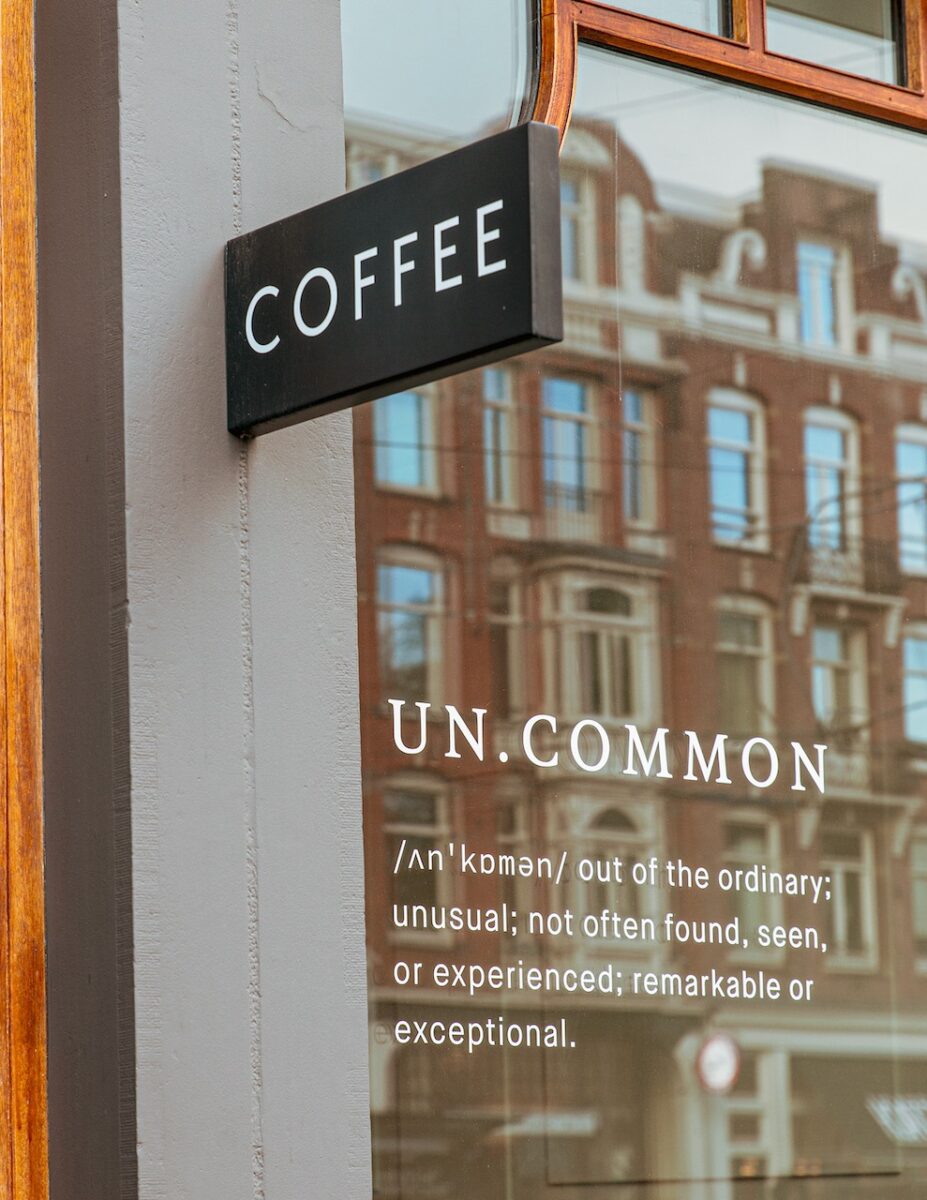
Uncommon is a roastery and coffee shop located in downtown Amsterdam, the Netherlands. All their coffees have something uncommon, be it taste, variety, processing method or the story behind them. And 80 to 90% of the green coffees they buy are organic-certified or have an equivalent accreditation (Rainforest Alliance).
Uncommon was co-founded in 2018 by Claye Tobin, from Australia, Nina Tromp, a Dutch, and Josh Cotton, a native of Britain. Together, they have steered the organic growth of Uncommon, placing “connections” at the center of its ethos. What are their underlying philosophies? To find out, we spoke to the three co-founders, who call coffee producers legends and heroes and strive to achieve equality in the coffee industry.
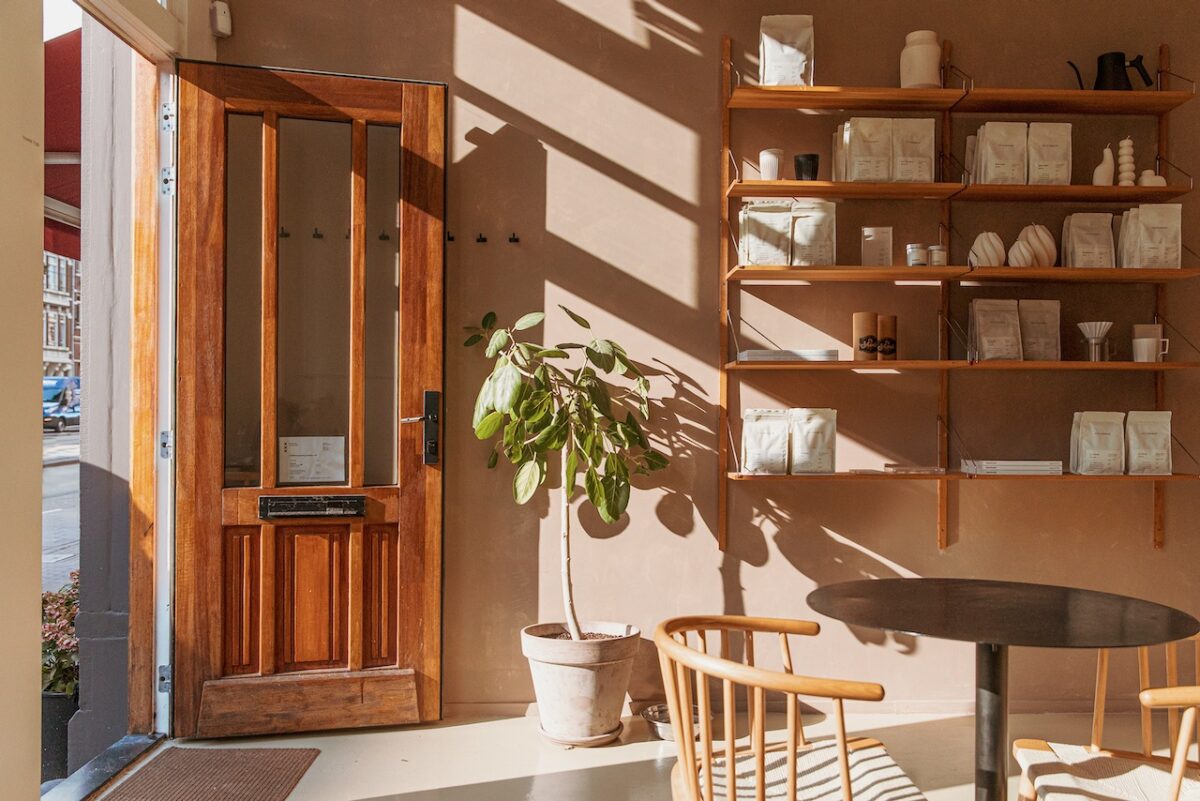
Awareness inspires action
Uncommon cafe sits near the national museum and Vondelpark, an urban oasis for Amsterdam citizens that attracts locals and foreign expats alike.
The cafe has a laptop free zone. And its minimalist design reflects a clear intention.
“People in Amsterdam have busy lives, always on the go,” explains Nina, who is responsible for marketing as well as sustainability and ethics. “When you consume something in a hurry, you have less focus and can’t appreciate what your coffee is, where it came from, or how much work was done to make it. It becomes difficult to be conscious of the love that has been poured into it.

There is a massive amount of work and skills that go into a cup of coffee. We hope that people appreciate it more, learn about the story behind it and become a bit more conscious about how they consume things.
We have a lot of repeat customers because they want to support a certain product. So they always ask for the same coffee. For example, we have a coffee from Peru. Its exporting company promotes gender equality and empowers women to succeed in the business world. 75% of the people working on coffee farms are women. They are mainly cherry pickers, meaning that they are at the bottom of the hierarchy. A few of our female customers have changed the way they buy things because they align with the cause.”
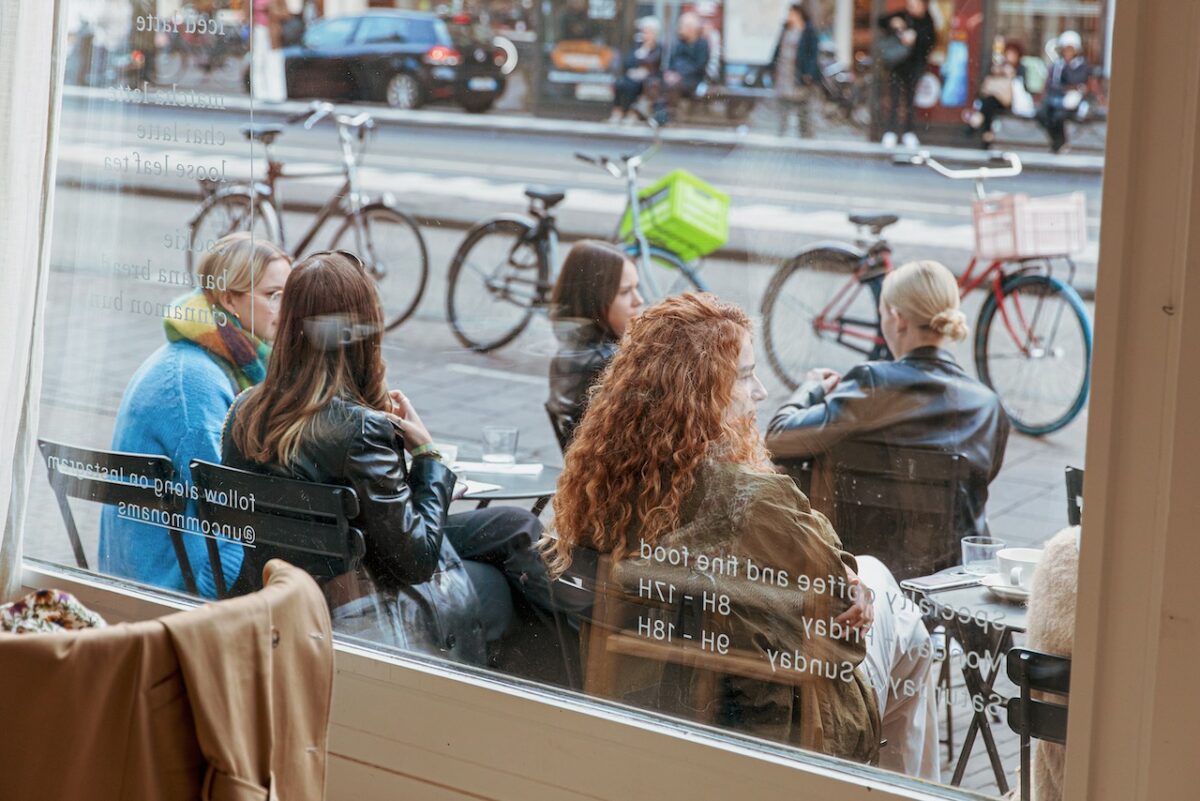
Of course, the right intentions and passion alone won’t keep a business up and running. A 19th-century Japanese thinker once said, “Economics without morality is a sin and morality without economics is nonsense.”
“We always try to do things the right way,” Nina goes on. “But that doesn’t have to mean compromising on the quality of coffee. There shouldn’t be a tradeoff between doing the right thing and maintaining high quality. It’s possible to keep it fair while creating an experience where people can enjoy good customer service, special foods and learn about stories. We want to show that you don’t have to compromise on anything.”

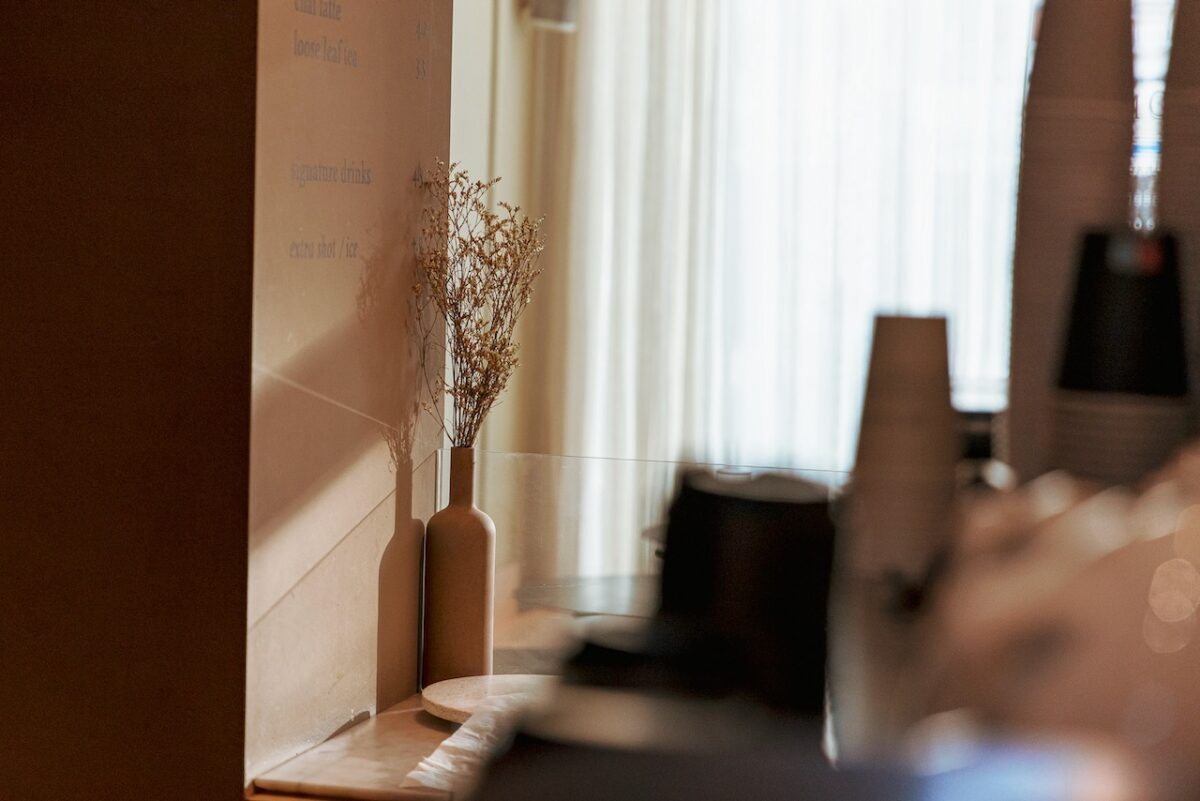
Sustainability driven by stories
Nina was pursuing a business model that is both ethical and sustainable while also being financially viable. Josh and Claye, meanwhile, saw a gaping disconnect between farmers and consumers. The starting point of Uncommon was a trip to coffee origins they made before they co-founded the roastery.
“We traveled to around five coffee origins for a few months,” Nina explains. “We realized that there is a unique story behind each and every coffee farm and coffee producer.
For instance, one of our partner farms is called Las Lajas in Costa Rica. Unfortunately, the farmer there fell ill and passed away after being exposed to chemicals for a long time. But that ignited a mission in his sons, who strived to change the coffee industry and went on to become the pioneers of organic farming in Costa Rica. It’s a sad reality, but also an inspiring story, too.”
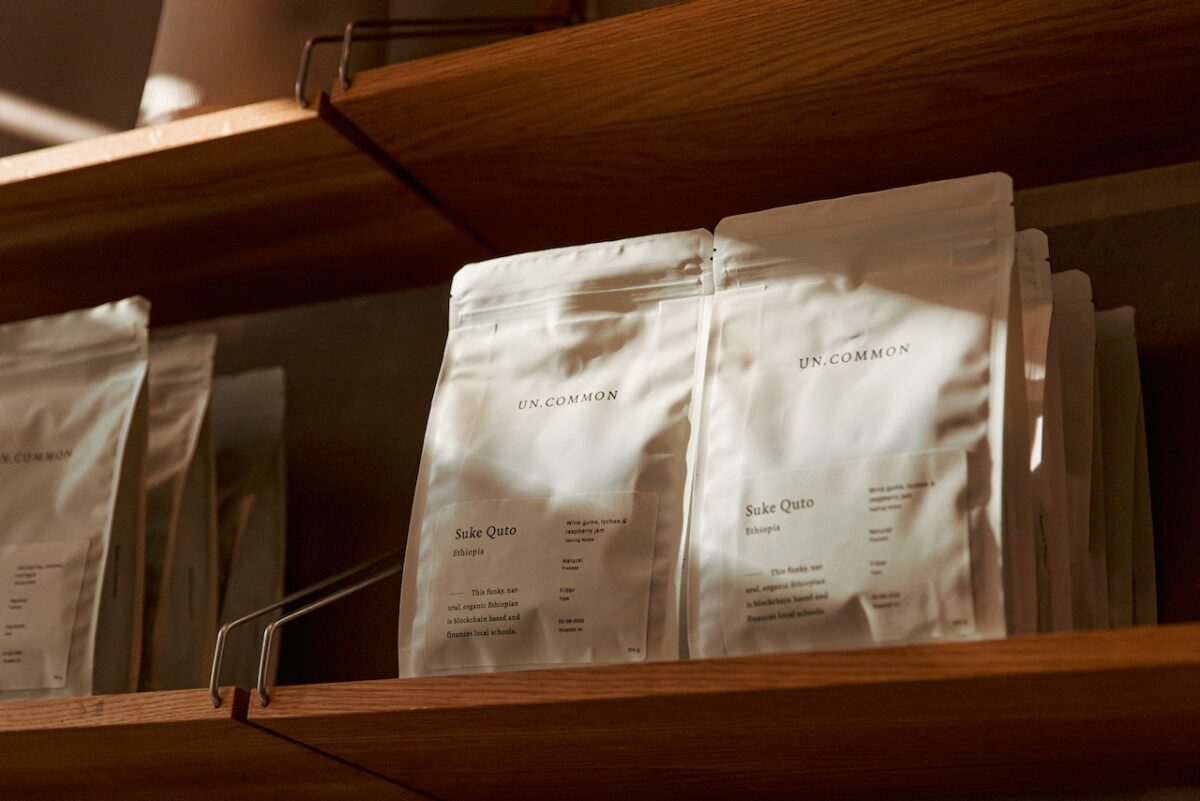
During the tour of coffee origins, the three witnessed firsthand how farmers were left at the mercy of various external factors, such as coffee leaf rust, unpredictable rainfall and price fluctuations on the international market. The realization – that farmers are not receiving the respect they deserve for their effort, despite being incredibly knowledgeable and inventive to work around many challenges – gave them a strong sense of mission to eliminate the disconnect between farmers and consumers.
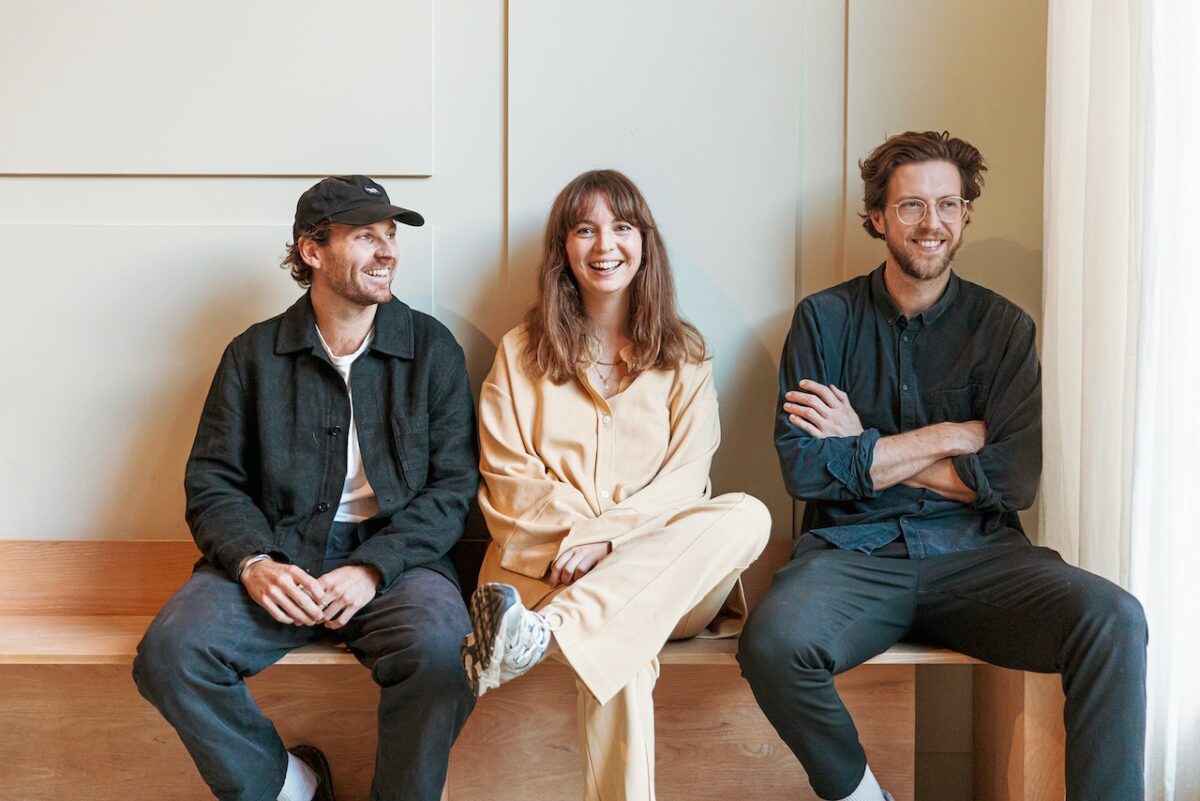
“I think the key to achieving sustainability is to increase consciousness. Storytelling is the biggest catalyst for change. If people support unethical and unsustainable products, that’s probably because they don’t know the story behind it. If they are aware of the impact their small everyday choices make on the many people and environments involved in the supply chain, they will be more inclined to make a sustainable choice.
For instance, if people know that the extra few cents they pay are going to help children far away to take a swimming lesson, they see more value in the money they pay. I think that compassion and transparency will help build a healthier supply chain and create more equality in the world.”

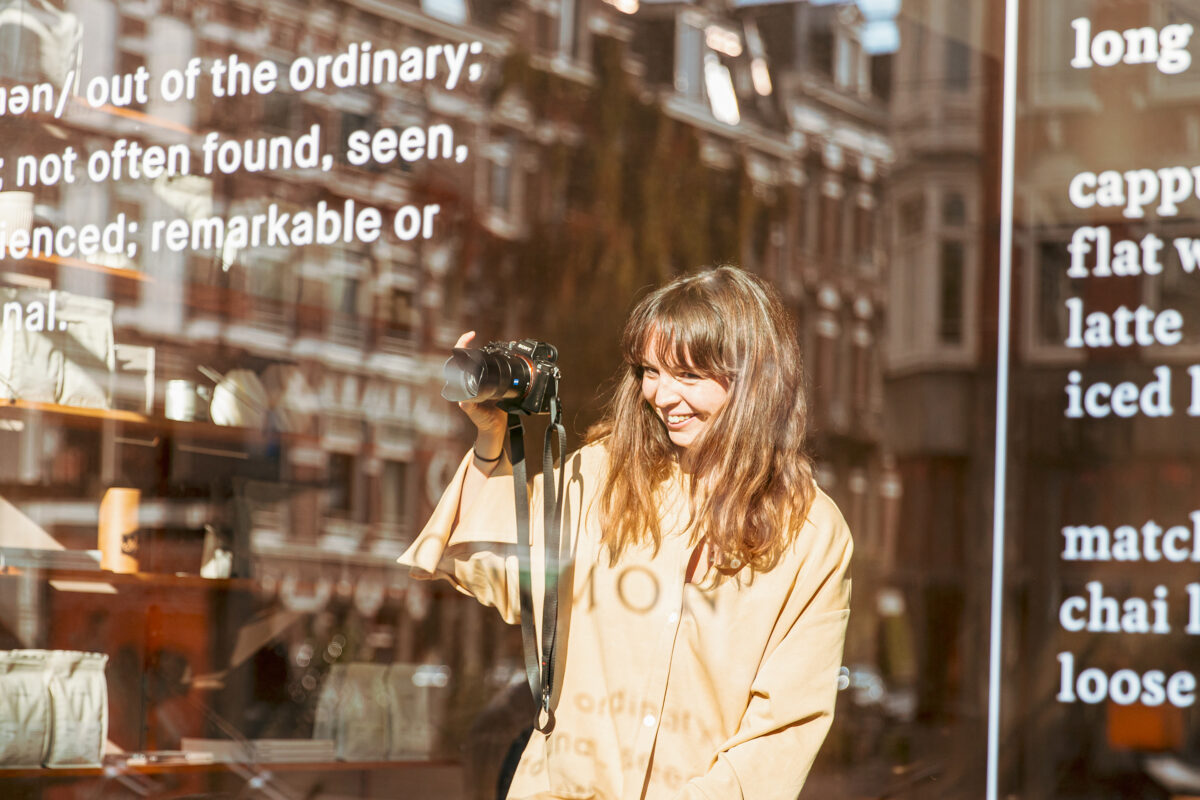
Making a difference with substantial action
Since its foundation, Uncommon has worked with green coffee suppliers on multiple projects aimed at supporting and empowering coffee farmers. In one such project in Myanmar, they realized how much difference they could make in the lives of farmers by paying just a few euros more for one kilogram of green coffee.
“Coffee farmers in Myanmar couldn’t make a living only from coffee,” Nina says, “so they had to grow opium. But there were always risks of drug lords coming at night or government officials raiding their properties. If the authorities found opium, they lit everything on fire and destroyed the farmers’ precious source of income.”
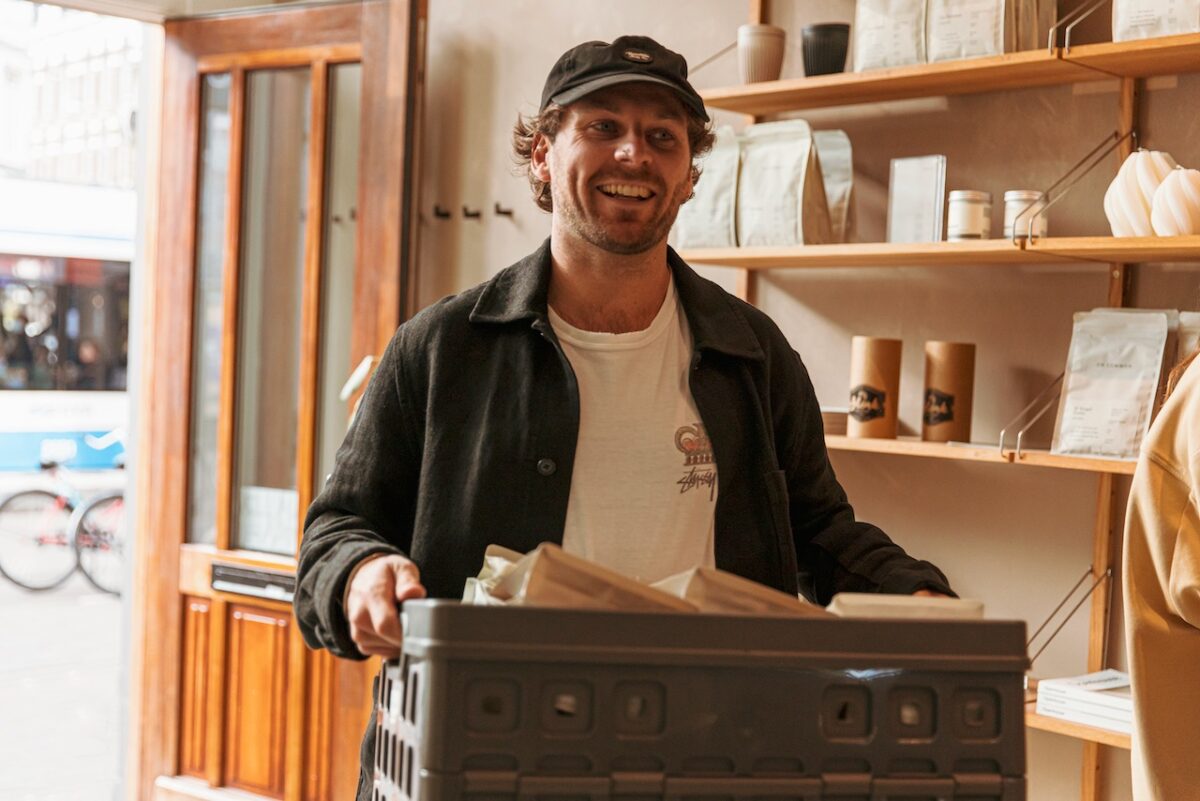
A solution to the problem was growing specialty coffee in larger volumes, instead of commodity coffee. To this end, the United Nations and Winrock non-profit made a large investment and provided technical training to producers. Uncommon continued to buy their coffees for a premium, eliminating the need for farmers to grow opium.
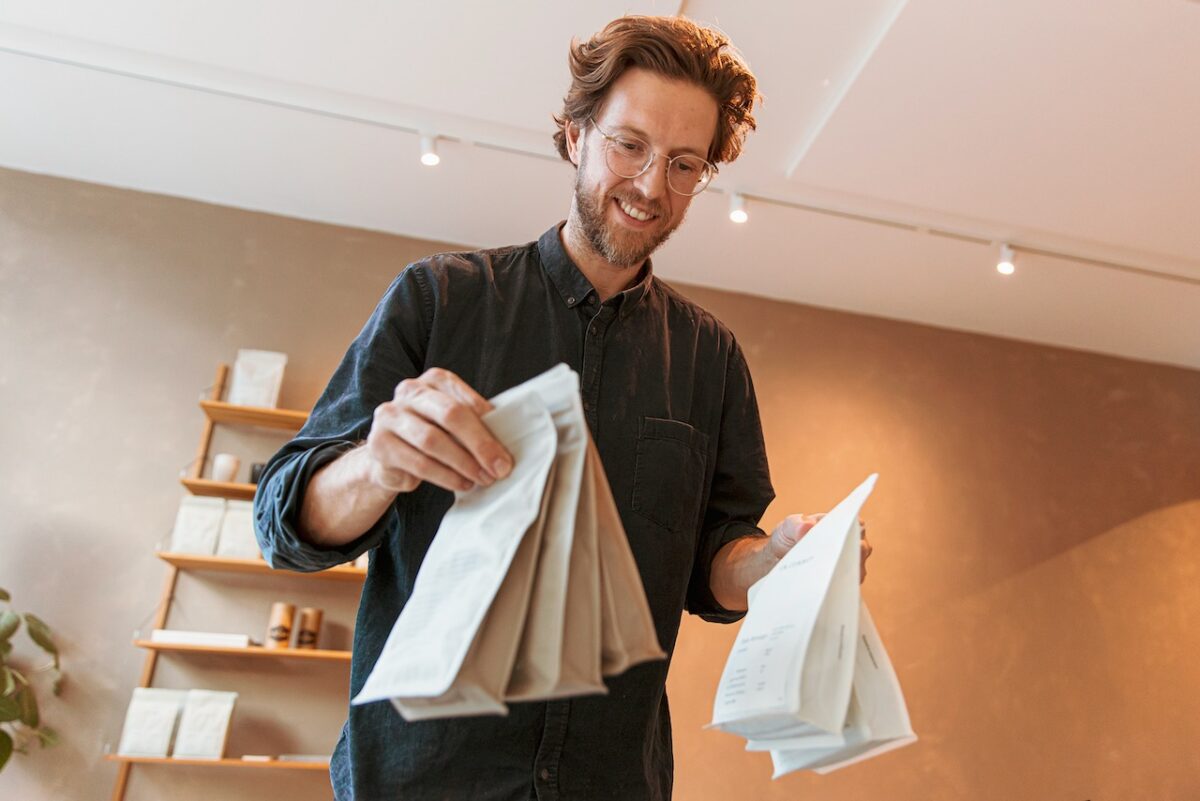
But for any solution to have a lasting effect, producers would need larger farms and earn a stable revenue stream through coffee. This is why Uncommon is setting aside a percentage of its profit to donate coffee seedlings to local farmers. The purpose is to invest more in producers at a coffee level to give them the confidence to grow only coffee, instead of opium.
“Our purpose is to make a difference, no matter how small, through substantial initiatives,” says Claye, who is responsible for building relationships with producers and managing the cafe and roastery. “We are working on our next project in Guatemala. We plan to introduce eco water filters made of clay. We found out that children there are drinking Coca Cola, lemonade or Sprite at school because they have no access to clean water.”
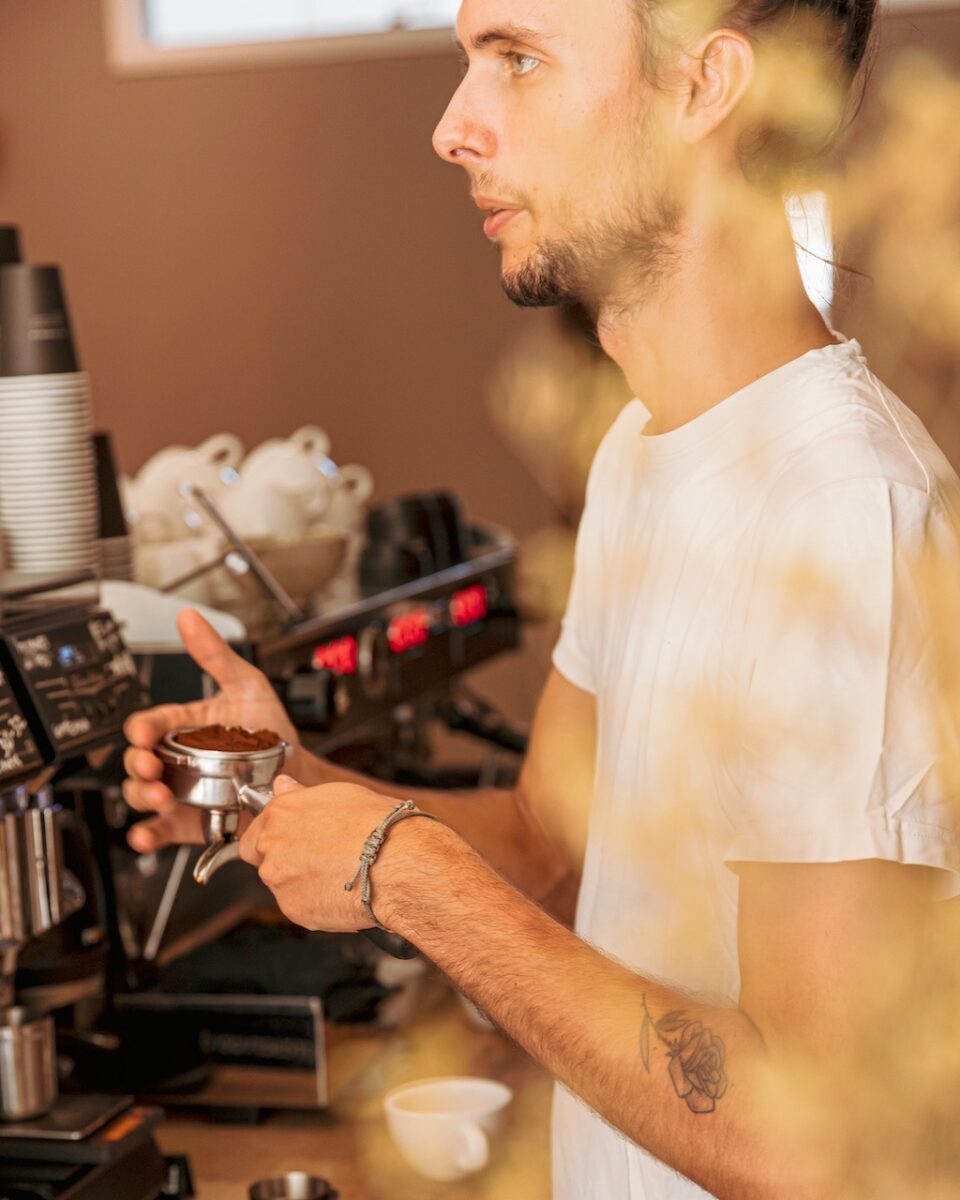
Transcending differences
Connection rooted in the same values has the power to transcend differences. With a staff of around 20 people, Uncommon is the personification of diversity. Its co-founders and staff come from several countries, including India, Spain, Italy and South Africa. And their backgrounds are no less diverse, with some members having left university for their love for coffee and another being a former nurse-turned coffee enthusiast.
Asked why Uncommon attracts people from such diverse walks of life, Nina points to her team’s open-mindedness and democratic stance. “We don’t believe in hierarchy. When we have monthly meetings, for example, we ask everyone to share their opinion and feedback. We welcome all different backgrounds and different ideas.”

Although work experience does have some bearing when Uncommon interviews job candidates, that or skill levels aren’t the only criteria when making hiring decisions. They see kindness and eagerness to learn as equally important. In fact, they have hired candidates with minimal experience in the industry. Josh, the head roaster who also oversees sourcing and quality control, explains:
“It can be rewarding to hire people with minimal experience because they often have a spark in their eyes to learn more about coffee. They have no bad habits. So if it’s the right person, they can learn fast and do a really great job.”

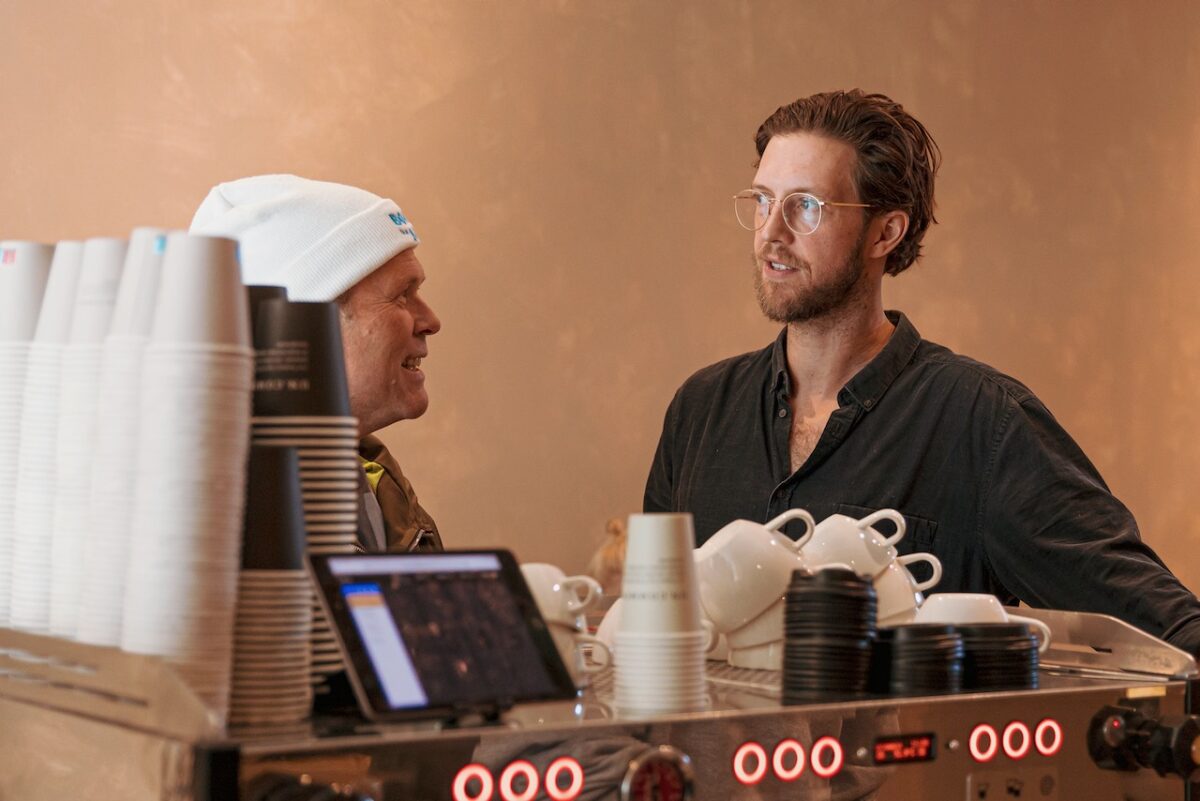
Restoring human-to-human connections
Covid-19 has wreaked havoc on every corner of the world, bringing with it the new normal and a paradigm shift in people’s working styles and ways of life. With the future looking more uncertain than ever, many businesses are finding it difficult to make a drastic decision.
Uncommon, though cautious as many others, has remained steadfast since their foundation in their pursuit to grow in an organic fashion. That is in part because they’ve seen more than a few roasters who lost sight of what they set out to do and compromised ethics for fast growth.
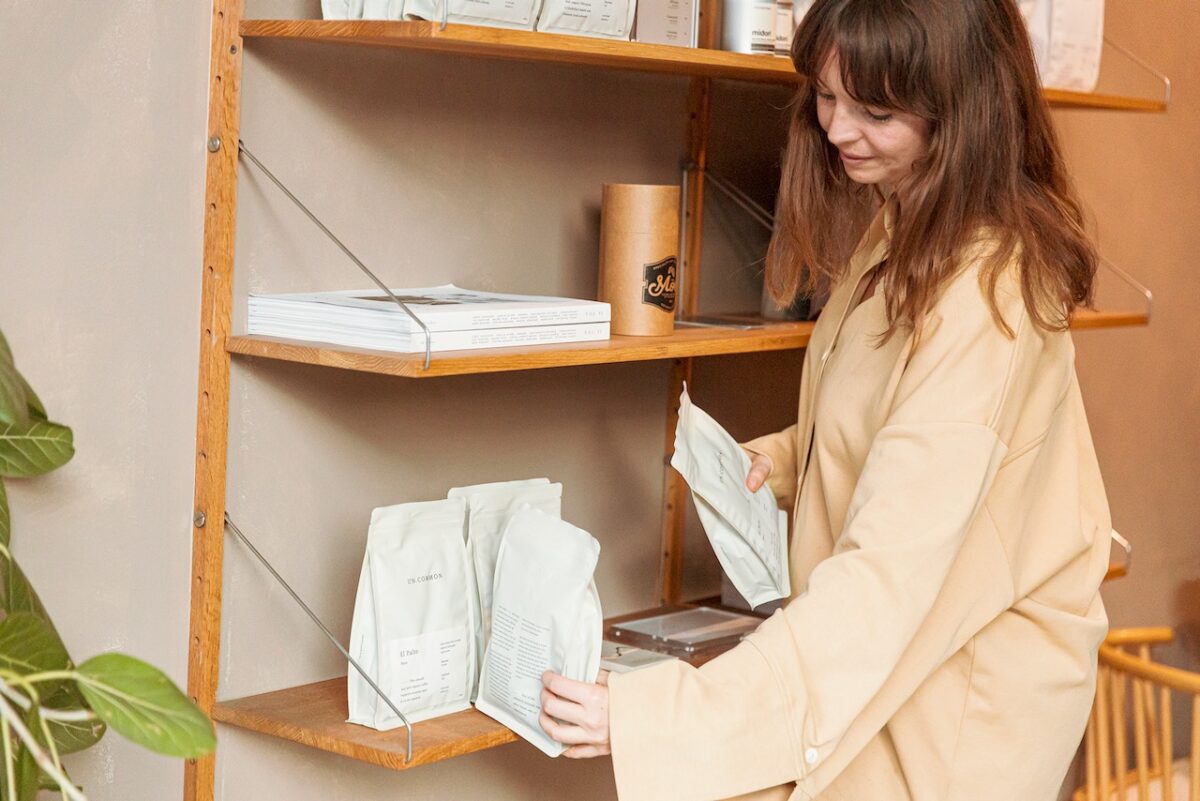
“Ideally,” Nina says, “we want to scale our business a bit more and form partnerships with every single farmer we work with. The more we do so, the more people we can reach with our message, and the bigger difference we can make in the lives of the communities we work with.
We’ve only been in this business for a few hours. There is only so much we can do now. But what we really want to avoid is forgetting our love for the coffee industry and putting money above all other things. I think it suits us to grow organically without putting pressure on ourselves just the way we do now.”
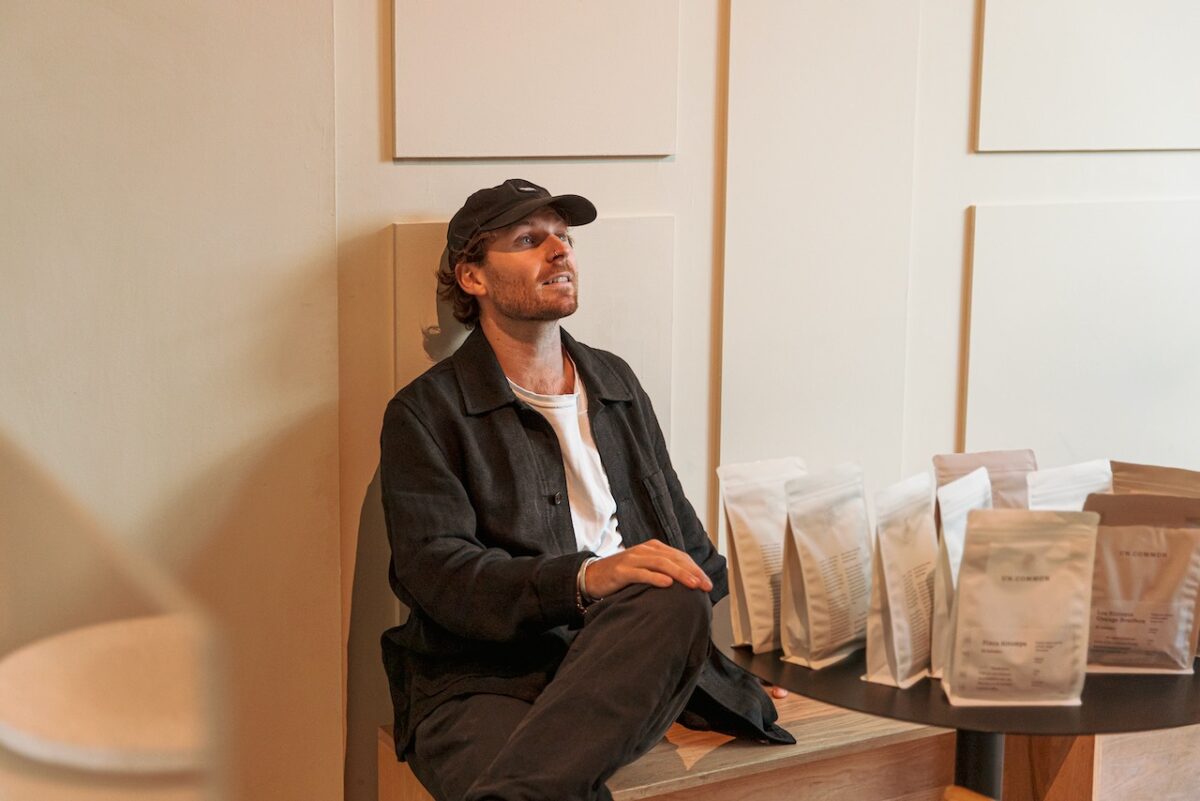
The disconnect between producers and buyers is perhaps the result of too much emphasis on saving time and labor in the name of streamlining. When communication lacks warmth and humanity, the experience can’t be memorable or unique. That’s why Uncommon makes it a point to have enough staff members at the cafe so that they can interact with customers, no matter how busy they are.
“If people know that there is a family behind every coffee,” Josh says, “it makes coffee a more personal product from a human instead of just a grain that’s been harvested.”
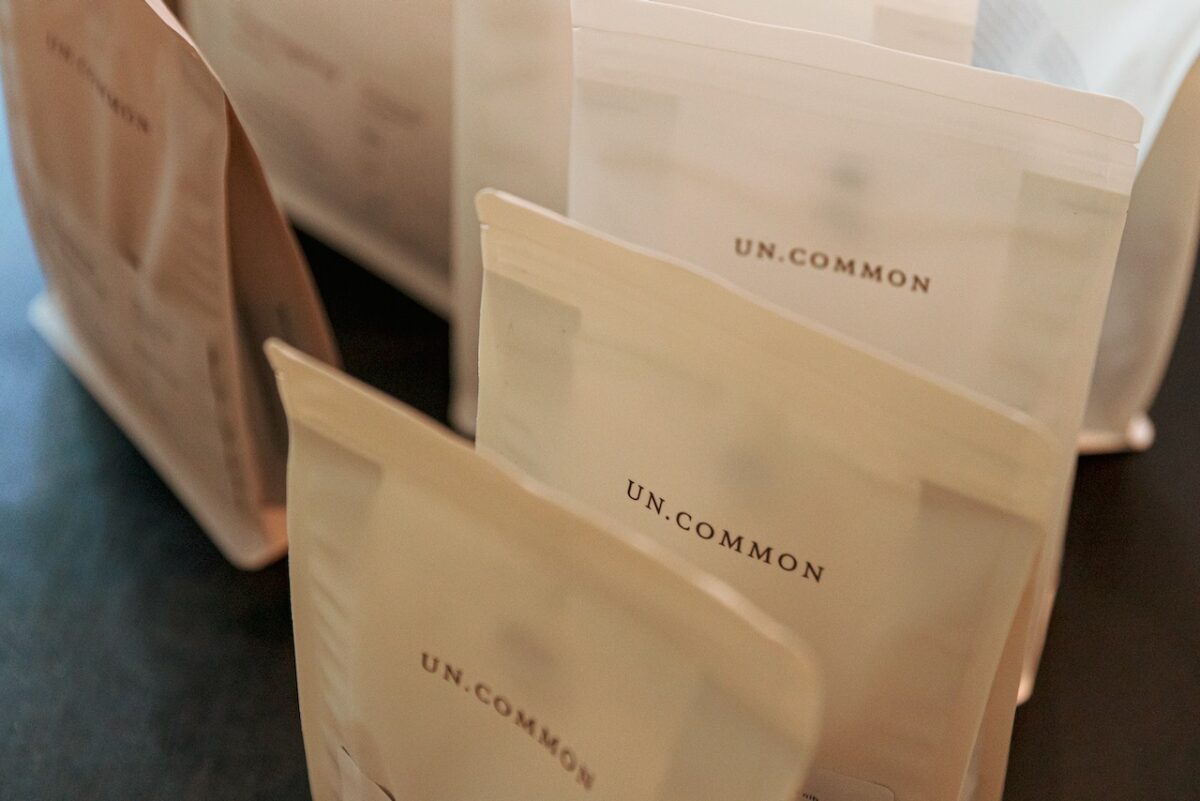
With the advance of civilization came a widening gap between people who make things and those who consume them. Uncommon is bringing back these human-to-human connections in this day and age, patching together the disconnect. And their message is clear: There is nothing common about coffee.
Originally written in Japanese by Tatsuya Nakamichi
Photos by Keng Pereira
MY FAVORITE COFFEE
Josh: When one of the roasters and I were cupping, we looked at each other without saying anything and broke into a smile because it was just so delicious. We were so happy with how good it tasted, how the roast went well and what the farmer had done and achieved. It was quite nice to share that moment with someone without expressing that with words.
Claye and Nina: I think our favorite coffee experience is when we personally brewed coffees for the producers in Myanmar and Thailand. We brought them coffee from their farm that we roasted in Amsterdam. They were really surprised to taste their coffee for the first time. Being able to see the smile on their faces, it made us really happy and appreciative of the work that we do. That's the best moment for Nina and I.

Uncommon Amsterdam
- [Open]
- MonーFri 8:00~17:00/Sat,Sun 9:00~18:00